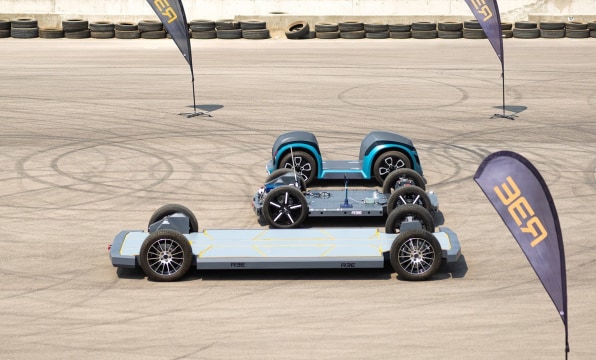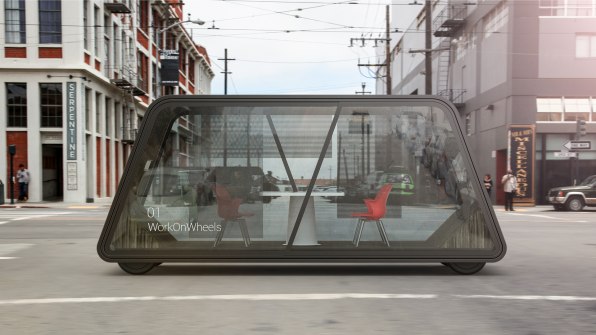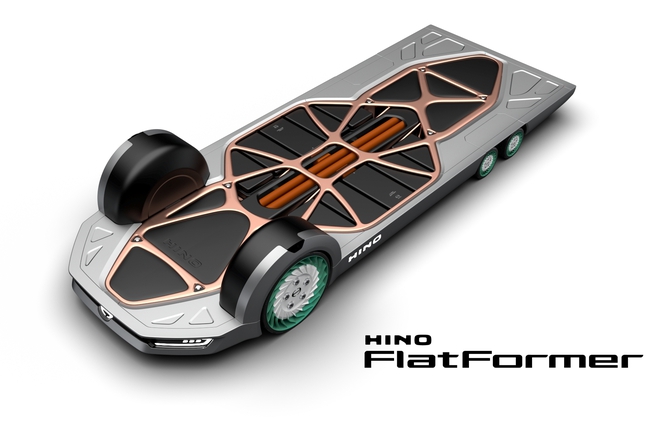The car of the future will be a skateboard, and you can put whatever you want in it.
Electric vehicles have made incredible progress. In addition to eliminating fossil fuels, they are quieter, accelerate faster than gasoline-powered cars, and, according to a new Consumer Reports study, they perform with less maintenance over time. But one of the biggest benefits of electric vehicles is that they revolutionize the way cars are built.
What is that? The video below from Israeli start-up Ree is a testament. The electric cars of the future will essentially be just a giant skateboard. With tiny motors placed inside the wheel, they can transform into any shape you can imagine, with any type of seat or layout possible, for build and place on this flat sole.
Traditional cars are also built on a flat chassis. But this chassis is hardly autonomous. Components like engine and steering system are top priority. Then the engine pushes a complicated series of axles under the car. Of course, you also have brakes, suspension, cooling, air lines and other systems. In total, up to 30,000 parts are screwed, pressed, glued and welded together. Today, most modern manufacturing industries use robots to frame an entire car first in the same way as building a house – from the frame to the body – which means the life of the floor is fixed. . permanently from the first moments on the assembly line.
Ree’s concept was built around a flat floor frame.
The Smallest is a nimble electric vehicle, designed for tight spaces and handling small cargo for last mile delivery services. This vehicle is designed to transport goods and people over short distances. The biggest you see is a typical complete car, a typical car, or a cargo car.

With all of the drivetrain components and the steering gear built into the floor, a Ree doesn’t need a metal frame or a luxury cabin seat to drive. In the video, they appear to be controlled by remotes, not self-driving cars yet. But building an electric car that requires less equipment like this in terms of functionality really opens up the future of electric vehicle design. This is where everything can be recreated, from the wheel to the top.
A similar perspective was introduced by Ideo in one of the most impressive automotive concepts of the past decade. What Ideo offers is a sort of office on wheels. It is essentially a square room with windows and walls.

Concept of office car Ideo.
But Ree is on the verge of realizing some of the positive experiences. Its technology was licensed by Toyota in its subsidiary specializing in the manufacture of Hino electric trucks. In a presentation last year, Hino detailed how the platform could power buses in small towns. Hino even goes so far as to highlight the details of a stand, which will allow the accompanying service modules to be attached and detached from the chassis at will.
With this design, the transition is simply to place and remove the cab from the chassis, much like changing a spare tire on a car. With the right business model, you can even imagine how easy it is to bring your van in for repairs, and instead of loaning you another car for temporary use, the dealers simply take the cab apart. , paste it in the new support. So your car will remain the same except that the transmission is brand new and the whole process only takes a few minutes.

Hino electric truck concept.
Transportation giants like Amazon are very interested in these giant electric skis to power delivery teams. The company of billionaire Jeff Bezos has just revealed new electric trucks built on a similar platform, manufactured by Rivian. For Amazon to have 100,000 electric cars on the road by 2030, they need to be easy to repair, with compatible parts. And the skateboard style design ensures that the delivery cars will never be out of service for a long time.
And with a slightly higher imagination, you can imagine mainstream vehicles getting a lot more personalized as dozens of aftermarket companies will build different types of cabins for this electric skateboard. . Even if you don’t want to buy one for yourself, small business owners are likely to want it. This type of vehicle can bring into play the essence of traditional retail and service, like the food truck that rocked the restaurant industry in the mid-decade.
Even according to the idea of the design studio NewDealDesign, the electric cars of the future could be linked together, forming a form of accumulation like a moving city. Your route will then look like a parade, or perhaps a shopping mall on wheels.
We are on our way to a world of a wide variety of vehicles, where design is limited by road laws rather than the creative decisions made by a few car manufacturers. a little bit.


